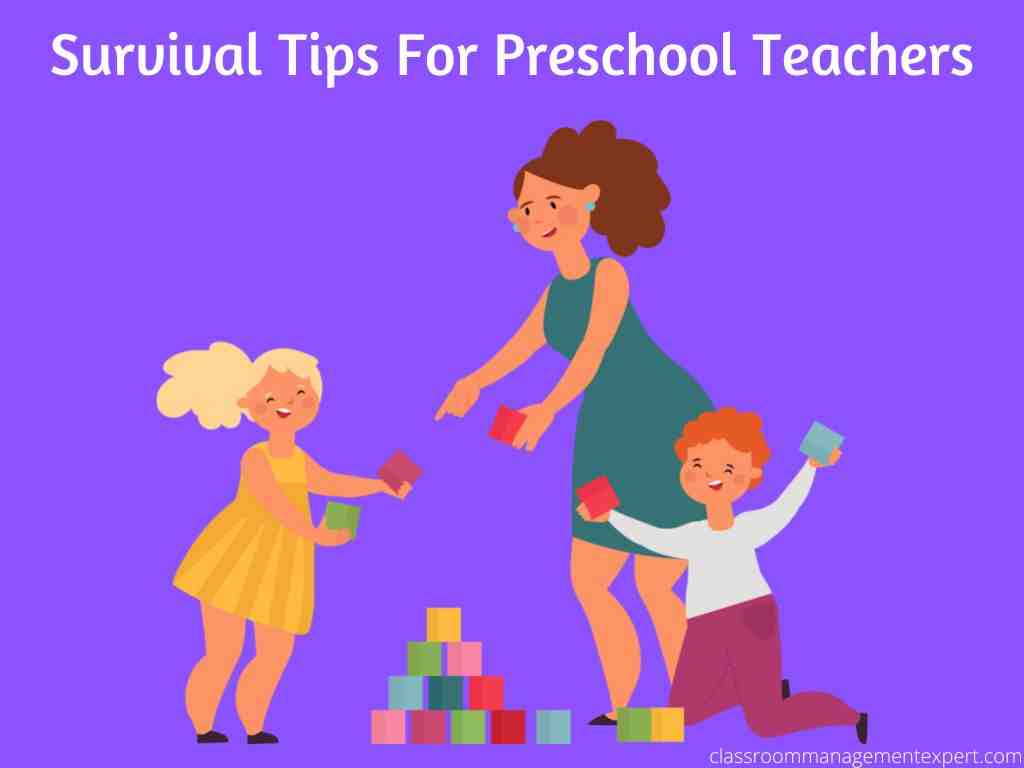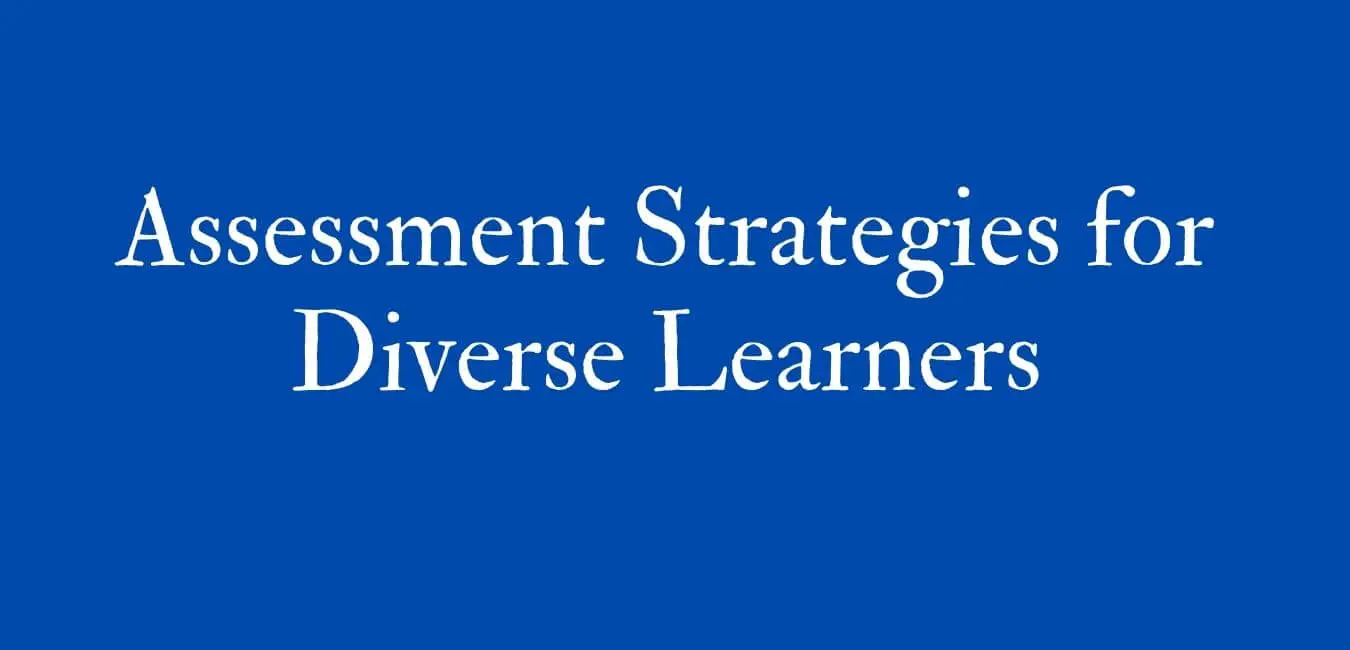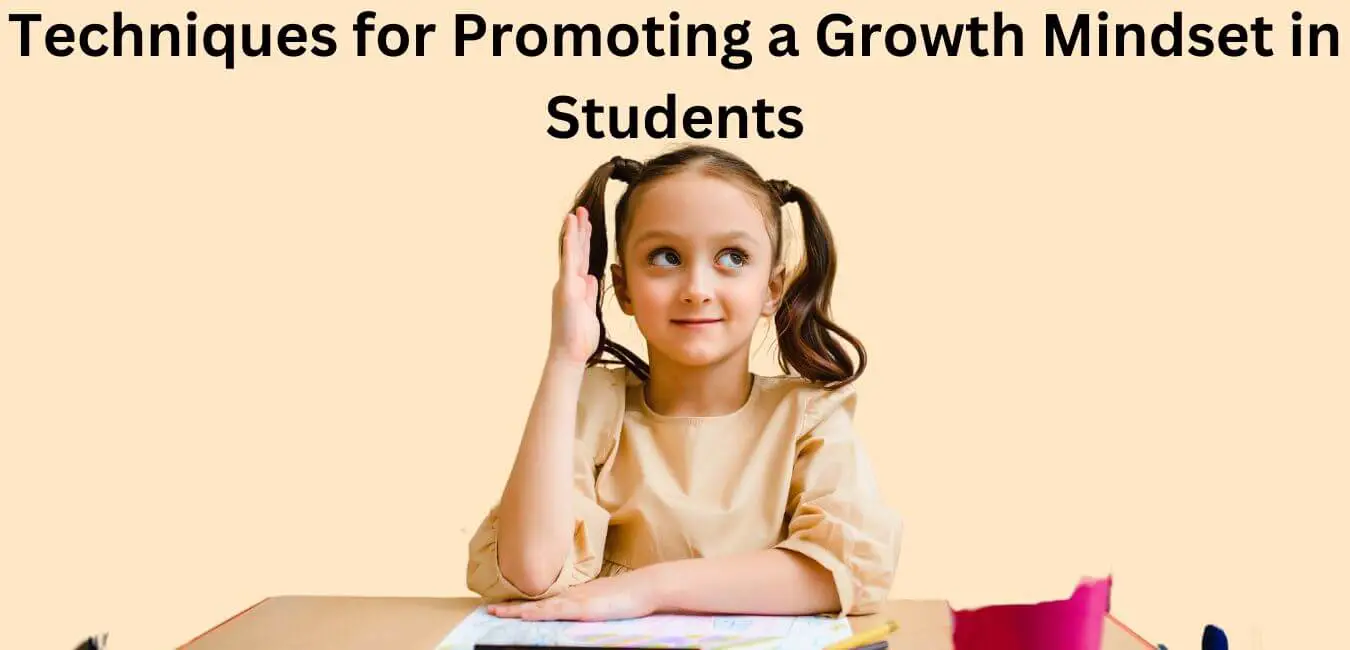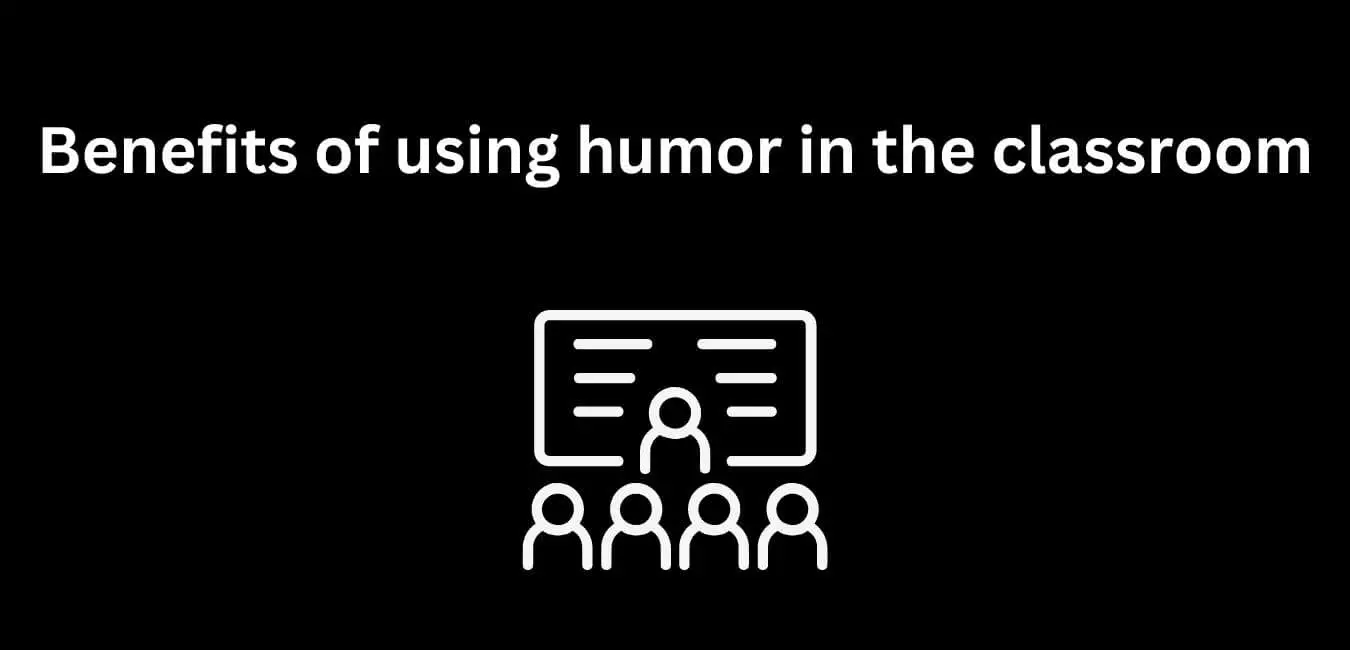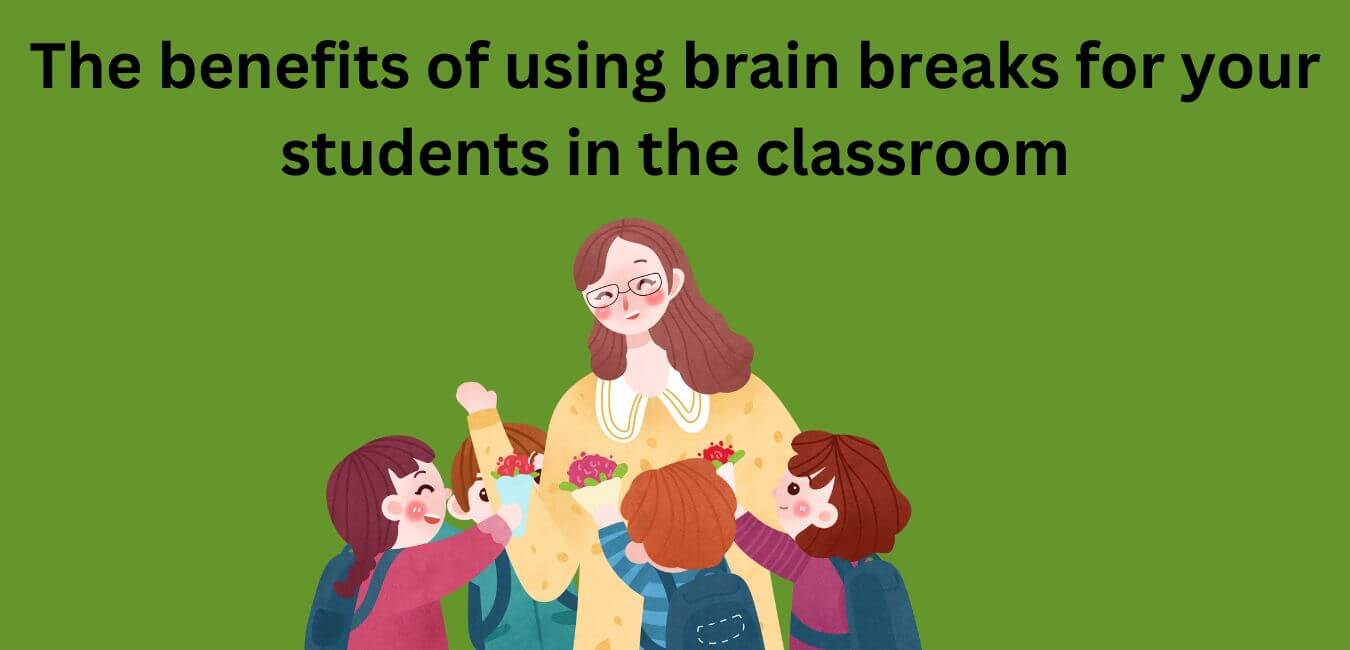Preschool teachers have one of the most important jobs in the world. They are responsible for teaching our youngest children the basics that they will need to know for the rest of their lives. While it can be a rewarding job, it can also be a very challenging one.
As such, there are a few survival tips that all preschool teachers should keep in mind. First, always be prepared for anything. Preschoolers are notoriously unpredictable, so it is important to be ready for anything they might throw your way. Second, never lose your sense of humor. Preschoolers are very funny, and you will need your sense of humor to keep a positive attitude. Third, make sure to have some fun with your students every day. It is important to balance work and play so that you can get the most out of both aspects of your job.
In this blog post, I will discuss some tips to help you survive in your classroom as a preschool teacher. So, get ready, and let’s start.
What are the challenges faced by preschool teachers?
Preschool teachers face a number of challenges when it comes to teaching young children. Below are some of them:
1. Managing a classroom full of children of different ages, personalities, and interests.
As a preschool teacher, you know that managing a classroom full of children of different ages, personalities, and interests can be challenging. For example, some children are more active than others, and some may be more vocal. It’s important to find a balance that works for the entire class.
2. Creating engaging and stimulating activities that are age-appropriate.
Preschoolers are curious and want to learn new things. However, they are not always able to sit still for long periods of time, making it difficult to provide engaging activities.
In order to keep preschoolers engaged and stimulated, teachers can use a variety of methods, including using hands-on activities, playing with games and puzzles, using visuals and puppets, and having children share what they have learned. It is also important to keep in mind the child’s developmental level when creating activities.
For example, toddlers may need more repetition than older children in order to retain information. Additionally, teachers should be aware of any special needs or disabilities of their students so that they can appropriately accommodate them.
3. Encouraging healthy eating habits and positive social interactions among students.
Many preschool teachers find it difficult to encourage healthy eating habits and positive social interactions among their students. It can be challenging to create an environment that is both nutritious and fun for children.
For example, some teachers may choose to have healthy snacks available for the children or have interactive games that promote physical activity. It is also important to be aware of any special needs or disabilities of the students so that they can be accommodated.
4. Ensuring that all the students are getting their fair share of attention and resources.
Preschool teachers are often tasked with ensuring that all of their students receive their fair share of attention and resources. Sometimes, this can be a difficult task due to the fact that preschool students are often more active and interactive than their elementary school-aged counterparts.
5. Maintaining discipline in a classroom full of active and demanding children can be a challenge for preschool teachers, especially inexperienced ones.
One of the most important aspects of running a successful classroom is maintaining discipline. This can be difficult when there are so many active and demanding children in the room.
For example, preschool teachers often have to rely on positive reinforcement and use effective punishments when necessary.
6. Keeping up with the ever-changing trends in early childhood education.
Many preschool teachers are up against the ever-changing trends in early childhood education. This means that they need to be constantly on their toes in order to keep up with new ideas and teachings.
Some of the most common and popular trends that preschool teachers need to be aware of include using technology more often; focusing on visual and motor skills; using play as a learning tool; incorporating multicultural concepts into the curriculum; and creating a safe and nurturing environment for their students.
By staying current on these trends, preschool teachers can create a successful classroom that meets the needs of their students.
7. Working efficiently as a team to provide the best possible care for the students.
Working efficiently as a team to provide the best possible care for the students is one of the major goals of any preschool.
By working together, teachers can pool their knowledge and resources to create a stimulating and nurturing environment for their students.
However, it is often challenging for some preschool teachers to work in teams. In order to work efficiently as a team, teachers must set aside their egos and focus on what’s best for the children.
By communicating effectively and working together as a team, preschool teachers can create an environment that nurtures their students.
8. Building strong relationships with their students and forming lifelong friendships.
Forming lifelong friendships with their students is a crucial part of a preschool teacher’s job. By building strong relationships with their students, teachers can create a positive and supportive learning environment that will benefit the students for years to come.
This is often a big challenge for many preschool teachers, who are trying to balance their students’ needs with the need to keep a good job, and for teachers who have young children of their own.
Tips to help you survive the challenges of preschool as a teacher.
As a preschool teacher, you will face many challenges. Here are 15 tips to help you survive them:
1. Be prepared for anything and everything.
As a preschool teacher, I have always prepared for anything and everything to help me survive. I keep a stash of snacks and water on my desk, as well as a first aid kit.
I know all of the emergency procedures for my school, and I make sure to review them regularly. I am also constantly on the lookout for potential hazards in my classroom and take steps to prevent accidents.
By being prepared, I am able to stay calm and collected in any situation, which helps to keep my students safe.
2. Be flexible and adaptable.
In order to survive and succeed as a preschool teacher, it is important to be flexible and adaptable. This means being open to new ideas and approaches, and being willing to change your plans if necessary.
It can also mean being willing to work long hours, as the job often requires more than the standard 40-hour work week.
One of the most important things for a preschool teacher to remember is that no two days are ever the same. This means that you have to be prepared for anything and everything.
There will be days when everything goes according to plan, and there will be days when nothing goes as planned. The key is to roll with the punches and always keep the children’s best interests at heart.
Another important tip for surviving and thriving as a preschool teacher is to build strong relationships with both the children and their parents.
3. Have a sense of humor.
Having a sense of humor is critical for any preschool teacher looking to maintain their sanity. A good sense of humor can help diffuse difficult situations, build relationships with parents and colleagues, and most importantly, create a fun learning environment for students.
There are days when being a preschool teacher can be incredibly challenging. But having a sense of humor helps me get through the tough times. On those days when the kids are extra rowdy or I’m feeling overwhelmed, I try to find the funny side of things. It doesn’t always work, but it’s worth a shot!
A sense of humor is also an important tool for building relationships with parents. When they see that I’m able to laugh at myself and the crazy situations that come up with young children, they know I’m in this profession for the right reasons.
4. Being patient.
In any classroom, but especially in a preschool setting, patience is key. If you are patient with your students, they will be more likely to reciprocate that patience and cooperate with you.
This doesn’t mean that you should always be lenient – there needs to be rules and boundaries in place – but it does mean being understanding and taking the time to explain things clearly.
Being patient also means being flexible. Things rarely go according to plan in a preschool classroom. There will be days when naptime doesn’t happen or lunchtime gets pushed back.
If you can roll with the punches and go with the flow, your students will pick up on your positive attitude and be more likely to stay calm in stressful situations.
Finally, remember that every child is different and learns at their own pace.
5. Be kind and caring.
In my preschool classroom, being kind and caring helps me succeed and survive. I have to be patient with the children and understand that they are still learning. I also have to be able to keep a positive attitude, even when things are tough.
One of the best pieces of advice I can give is to always stay calm. If a child is having a tantrum or acting out, it’s important not to get upset. Getting angry will only escalate the situation and make it worse. Instead, try to stay calm and redirect the child’s attention to something else.
6. Be calm and collected.
If you’re new to teaching preschool, the first few weeks can be overwhelming. Here are some survival tips to help you succeed in your classroom.
One of the most important things you can do is stay calm and collected. This will help you keep your students calm and focused. When things get chaotic, take a deep breath and remind yourself that you’re in control.
Another important tip is to be organized. Create a daily schedule and stick to it as much as possible. This will help your students know what to expect each day and stay on track.
Finally, don’t forget to take care of yourself. Teaching can be stressful, so make sure you take time for yourself outside of the classroom. Get enough sleep, eat healthy meals, and exercise regularly. These three things will help you be your best for your students.
7. Be firm but fair.
When it comes to survival tips for preschool teachers, being firm but fair is key. You need to be able to set boundaries with your students and enforce rules consistently.
However, you also need to be understanding and patient – remember that they are only young children, after all. If you can strike the right balance, you’ll be able to create a harmonious classroom environment where everyone can thrive.
8. Being organized and efficient will help you succeed in your preschool classroom.
You might think that being organized and efficient is only important for people in “real” jobs, but it is just as important for preschool teachers. If you are organized, you will be able to find things when you need them and have a better handle on your classroom.
Efficiency is key in the preschool classroom because there is always something that needs to be done. Here are some tips to help you get started:
Label everything. This may seem like a no-brainer, but it is seriously helpful. Label shelves, drawers, bins, etc. with pictures or words so that you (and your students) can easily find what you are looking for.
Make a schedule and stick to it. Having a daily schedule will help your students know what to expect and help you stay on track.
9. If you are creative and resourceful, you can survive and succeed in your preschool classroom.
If you’re a preschool teacher, chances are you’re also creative and resourceful. After all, it takes a lot of imagination to come up with activities that will keep 3- and 4-year-olds engaged and learning. It also takes resourcefulness to find the materials you need to make those activities happen.
10. Keep a positive attitude.
It’s no secret that teaching can be a challenging profession, especially when working with young children. Preschool teachers have to be patient, flexible, and, above all, positive. A positive attitude is essential for success in the classroom.
11. Be a good role model for your students.
It is important for preschool teachers to be good role models for their students. By being a good role model, you can effectively teach your students the appropriate behavior and help them survive in the classroom.
Some ways to be a good role model for your students include: setting a good example, being patient, and having a positive attitude. It is also important to be consistent with your rules and expectations. When you are a good role model for your students, they will be more likely to follow your lead and behave appropriately in the classroom.
Being a good role model is essential for preschool teachers in order to create a successful learning environment. By setting the right example and having positive interactions with your students, you can help them thrive in the classroom.
12. Be professional.
If you want to survive in your preschool classroom, always be professional. This means being organized, prepared, and having a positive attitude. You also need to be able to handle difficult behavior from children and parents. Finally, don’t forget to take care of yourself, both physically and emotionally.
13. Communicate effectively with parents and other staff members.
If you want to succeed as a preschool teacher, you need to be able to communicate effectively with parents and other staff members.
This means being able to listen to their concerns and suggestions while being able to explain your own ideas clearly. It’s also important to be respectful of everyone’s time and to be organized in your communication.
14. Handle difficult situations calmly and confidently.
As a preschool teacher, you will face many challenges and difficult situations. It is important to remain calm and confident in these situations, as this will help you be successful in your classroom.
Some tips for remaining calm and confident in difficult situations include: staying positive, taking a deep breath, and being prepared. It is also important to remember that you are the adult in the situation and that the children are looking to you for guidance.
If you can handle difficult situations calmly and confidently, it will go a long way toward helping you be successful in your preschool classroom.
15. Make sure your classroom is clean, tidy, and well organized.
If you want to succeed as a preschool teacher, it’s important to keep your classroom clean, tidy, and well-organized.
A neat and orderly environment will help your students feel comfortable and focused, and it’ll be easier for you to keep track of materials and supplies.
For example, I make sure that I have a storage area for every item in my classroom. This way, I know where to find everything in a hurry and my students don’t have to worry about looking around for materials.
Conclusion
In conclusion, these are some great survival tips for preschool teachers. With a little bit of planning and organization, you can make it through the day with ease. Remember to take breaks when you need them, and to ask for help when you’re feeling overwhelmed. With these tips in mind, you’ll be able to survive and thrive in your new role as a preschool teacher.

